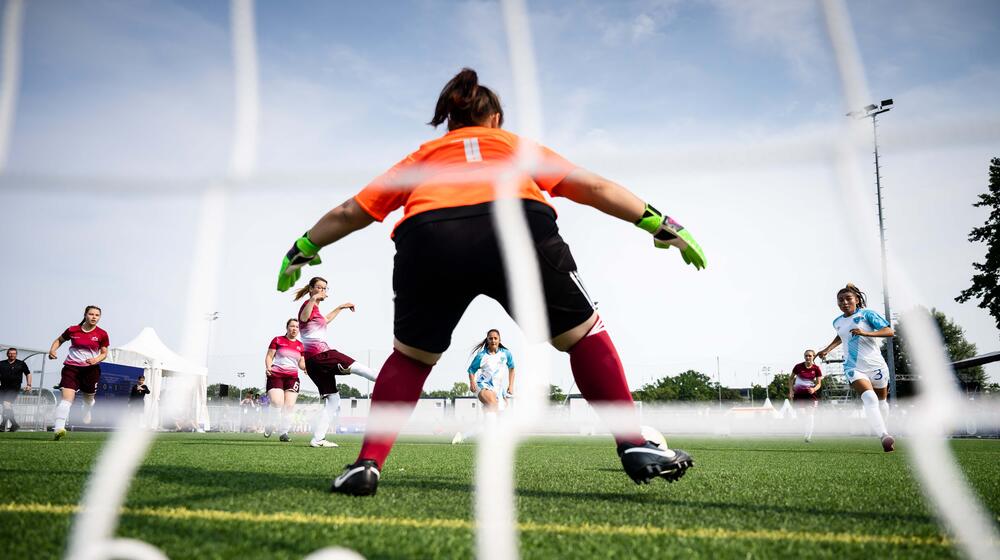Updates
UNFPA supports inclusion through sport at the Special Olympics World Games 2023
07 Aug 2023
Updates
07 Aug 2023
At the Special Olympics World Games 2023 held in Berlin, UNFPA committed its support to the Global Leadership Coalition for Inclusion – a pioneering, multilateral effort to support young people with intellectual disabilities in sport. The initiative aims to expand inclusive sports and education opportunities to over 2 million young people in more than 150,000 schools and scale up Special Olympics programming to 180 nations. The coalition is a first in bringing together representatives from national governments, industry, philanthropic organizations and the development community with a shared global commitment.
UNFPA’s participation in the coalition will bring added attention, investment and advocacy for women and girls with intellectual disabilities around the world. The partnership will in turn underscore UNFPA’s commitment to supporting the rights and aspirations of girls of all abilities, enabling them to understand their bodies and sexual development, and to protect themselves against sexually transmitted infections and unintended pregnancies. The Special Olympics will also provide coalition partners with data and technical assistance to design public-private partnerships to advance social inclusion in education through sport.
“UNFPA joins the Global Leadership Coalition for Inclusion to bring added attention, investment and advocacy for women and girls with intellectual disabilities around the world. Together we will advocate for the implementation of inclusive policies and greater opportunities”, said Ian McFarlane, Director of the Communications and Strategic Partnerships Division at UNFPA.
Bodily autonomy is for everyone, including people with disabilities. People with disabilities experience more violence than other people, and women and girls with disabilities are nearly three times more likely than other women to experience sexual violence.
UNFPA and the Special Olympics first signed a global partnership in 2019, aimed at empowering young girls with intellectual disabilities to engage in sport. This led to support for a programme called “Come on, Let’s Play” which offered soccer classes for young girls with intellectual disabilities. With a pilot programme in Ukraine that involved more than 200 participants, the programme now reaches thousands of young people in 15 countries, including Albania, Botswana, Ghana, Jamaica and Türkiye. The programme also uses social media and prominent influencers to drive awareness on intellectual disabilities and the need for active engagement in sport.

“Reducing gender inequality in sports is really important,” says Jaime Nadal, the UNFPA representative in Ukraine. “A survey last year showed that about 30 per cent of girls consider football to be exclusively a men's sport, although 45 per cent of girls loved to play football. There shouldn’t be such a gender division. In the new project with the Special Olympics, we’ve taken it a step further and we want to support girls with intellectual disabilities, to give them the opportunity to play football, to socialize and to develop.”
The programme’s coaches aim to discourage violence and discrimination by teaching young athletes to respect themselves and others – particularly women and girls. And as sport can improve reflexes, self defence and situational awareness, the partnership is designed to build up the agency people with disabilities have over their own bodies and address gender-based violence by strengthening communication skills, attentiveness, memory recall and reactions.